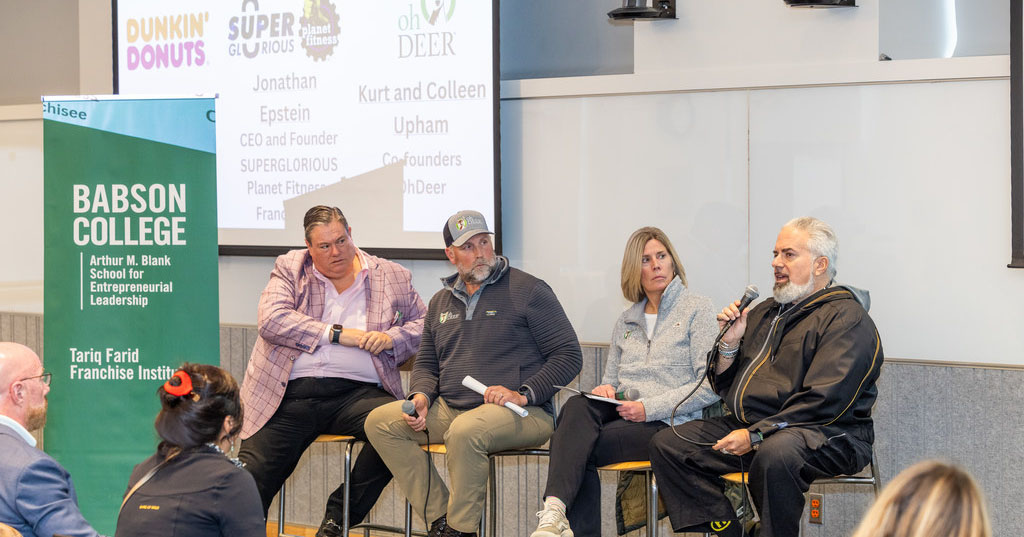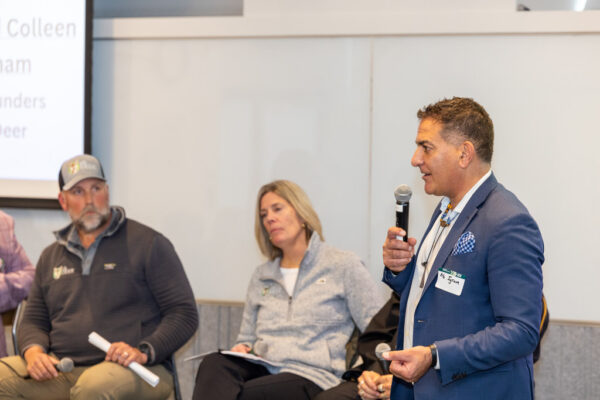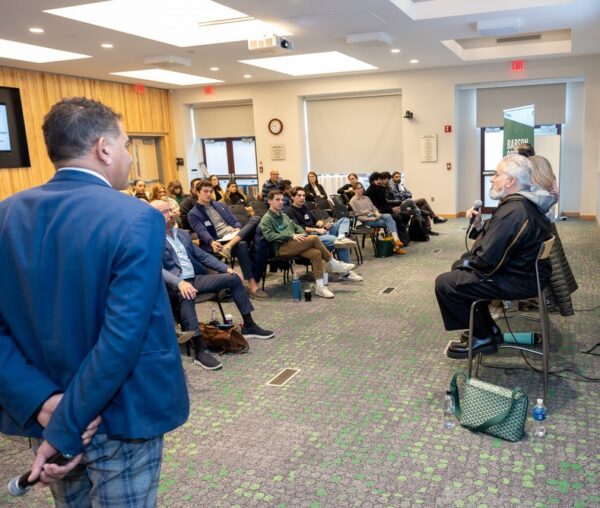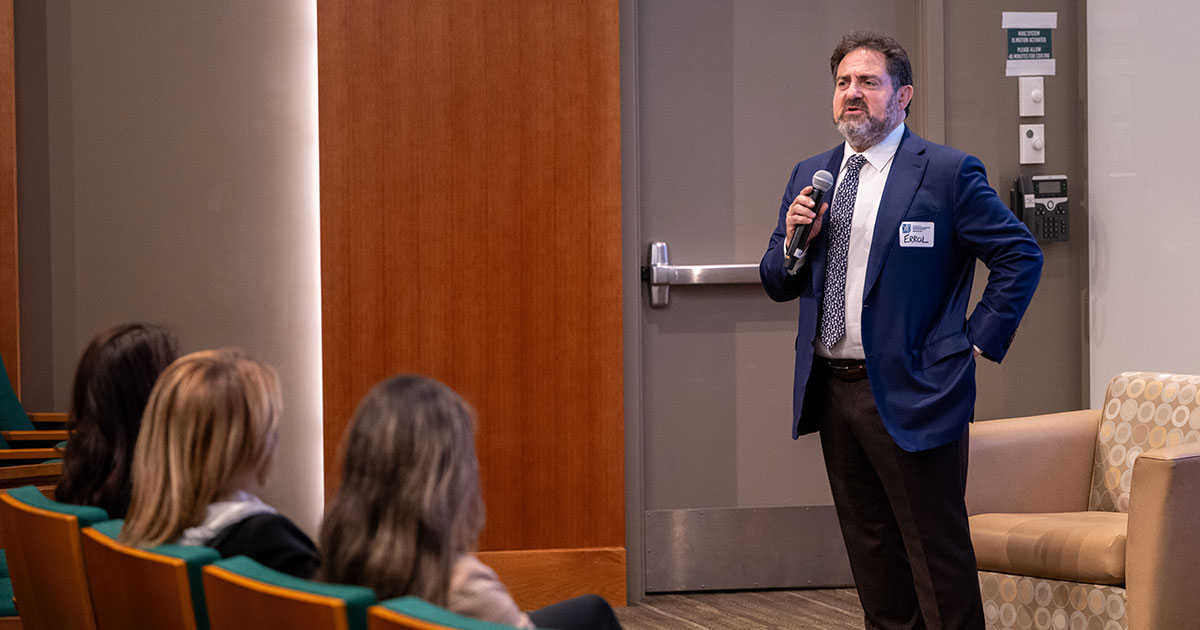Unveiling the Power of Franchising: Myths, Truths, and Triumphs

Franchising, often hailed as a pathway to entrepreneurship, comes with its share of myths, lessons, and unexpected truths.
Babson alumni and others embedded in all aspects of franchising gathered during Global Entrepreneurship Week to discuss their insights with Ab Igram MBA’96, executive director of Babson’s Tariq Farid Franchise Institute.
The event included Neal Faulkner MBA’96, who owns 28 Dunkin’ Donuts, LLC stores in Massachusetts and Rhode Island; serial entrepreneur and an early Planet Fitness franchisee that scaled to become a large multi-unit franchisee Jonathan Epstein MBA’98; and emerging franchisors Colleen and Kurt Upham, co-founders of deer, tick, and mosquito control company ohDEER.
Franchising Myths

Faulkner ardently dismissed a pervasive myth that franchising equates to “buying a job” or solely enriching others.
“I think it’s the biggest myth, and it’s one that annoys me the most,” Faulkner said. “I didn’t buy a job. I’ve used franchising as a way to make substantial money for myself and my family.”
By joining a powerhouse business such as Dunkin’, he was able to leverage its established success to fuel his own prosperity. “It’s a beast,” Faulkner affirmed, speaking to Dunkin’s scale and potential for substantial earnings.
Igram debunked another myth that franchising is limited to restaurants or food services. He pointed to Jiffy Lube, a franchise co-founded by Babson President Stephen Spinelli Jr. MBA’92, PhD, as a perfect example of a successful franchise outside of the food industry.
The Truths Behind Successful Franchising
Contrary to popular belief, entering the franchise realm doesn’t necessitate hefty investments or a flock of investors.
Colleen and Kurt Upham started selling their deer and tick control product out of their basement. They eventually decided to franchise to meet demand for their product, underlining the autonomy in scaling when franchising.
“You don’t necessarily need a ton of money or a predefined timeline,” Colleen Upham explained, advocating for strategic and organic growth.
Selectivity and Partnering Wisely

The adage “quality over quantity” holds true in franchising. The Uphams candidly reflected on franchise selectivity, showcasing the significance of discernment.
“You don’t have to award franchises to everybody,” Upham asserts, highlighting the critical need to vet potential partners.
Keeping an open mind also can be important, Igram said. “Sometimes the best partners aren’t who you think they may be.”
Epstein, who launched a full-service fitness brand that eventually became a Planet Fitness franchisee, said some of the best franchisees had worked for the competition: World Gym.
“You’re really looking for the thought leaders in your business, but you should also look outside your business to other franchisees to see how they’ve done things,” Epstein said.
Franchising Education
Faulkner highlighted two Babson classes that have served him well over his 24-year franchising career.
“The first one was a speech class,” Faulkner said. “If you’ve got the chance to take a class where you’re going to have to get up and speak, and eventually the whole class is going to give speeches—take the damn class. And, if there’s a second one, take that one, too.”
PODCAST: Hear more insights from Neal Faulkner MBA’96 on the Stars of Franchising podcast.
Faulkner and Epstein also urged students to take a class on negotiation skills in business.
“You need to learn how to fail, you need to learn how to get beat so that you know, when you are losing, that you need to walk away,” Faulkner said.
“The hardest thing to do is walk away from a deal. You put in time, sweat equity, and everything else, and when you’re in the middle of a deal, you don’t want to lose all that,” Faulkner said. “But, you need to learn how to do that.”
Posted in Insights




